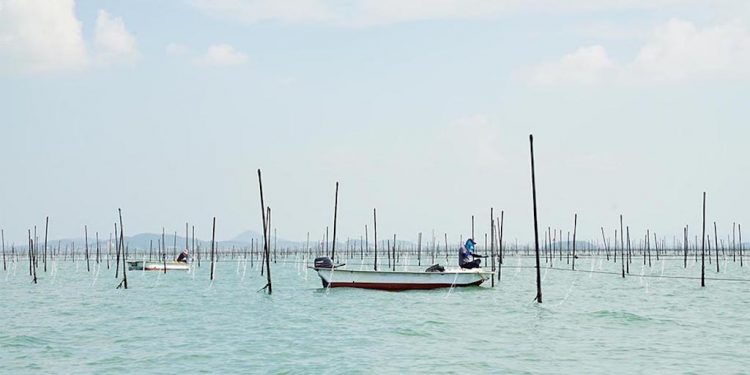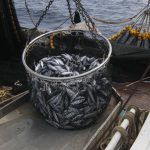Sinan Bada corporation, a producer located in Shinan County, a collection of 1004 islands on the west coast of Korea, is cultivating the first seaweed that will use both MSC and ASC ecolabels on products.
The ASC-MSC certified laver will be sold by Pulmuone Food Co., Ltd as part of a new Memorandum of Understanding (MoU) between the eco-conscious food brand, the local government of Shinan County and the Marine Stewardship Council. The partnership will significantly increase the supply of sustainable seaweed in the Korean market, whilst also protecting the important marine ecosystem of Jeollanam-do, a UNESCO recognised area of biodiversity.
‘We are proud the world’s first seaweed eligible for sale with both the MSC and ASC eco-labels is being cultivated in the UNESCO recognised Biosphere Reserve of Shinan County. Through this MOU, we will expand the responsible and sustainable seaweed market by actively promoting Shinan’s certified seaweed products,’ said Mark Seo, programme director of MSC Korea.
‘Laver is extremely important to the local economy, with indigenous production methods passed down the generations. This agreement aims to preserve that heritage working with the locally community in a manner that is socially responsible.’
The ASC-MSC Seaweed Standard focuses on minimising the environmental and social impacts of seaweed operations. On the mudflats in the biodiversity spot, the seaweed is cultivated from wild seeds using the traditional and sustainable fixing poles method. Despite having lower yields, this traditional approach to laver cultivation is more sustainable with a greater exposure to air reducing disease and improving the quality and taste of the laver.
Laver Seaweed is extremely popular in Korea, with 46,000 tonnes cultivated in Shinan County. Often sold in dried sheets for use in sushi rolls, laver’s demand continues to grow.
‘Commitments to sustainable production such as that made by Sinan Bada will play a crucial role in preserving marine ecosystems. With a growing demand for seaweed globally, it is crucial to demonstrate that seaweed comes from a sustainable source,’ commented ASC-MSC seaweed manager Patricia Bianchi.
‘Consumers in Korea can now support producers’ efforts by looking for the MSC and ASC labels on seaweed products.’
Sinan Bada becomes the first eligible to use both eco labels because it meets the Bi category in the Standard, which means its seaweed is cultivated at sea and the seed is supplied from wild stocks.









